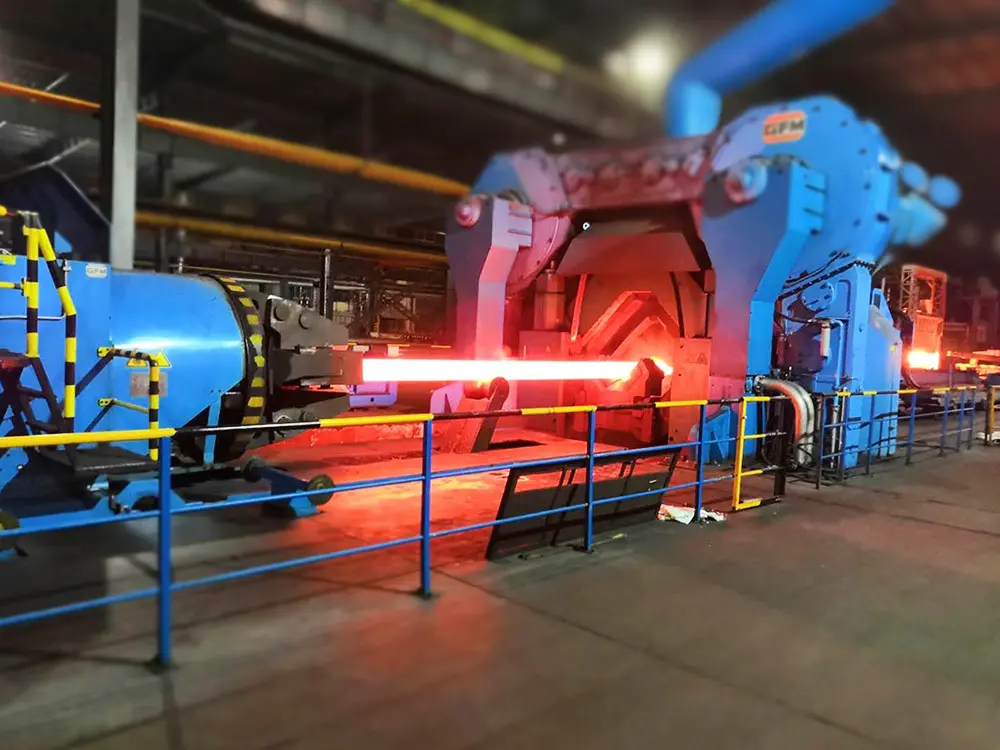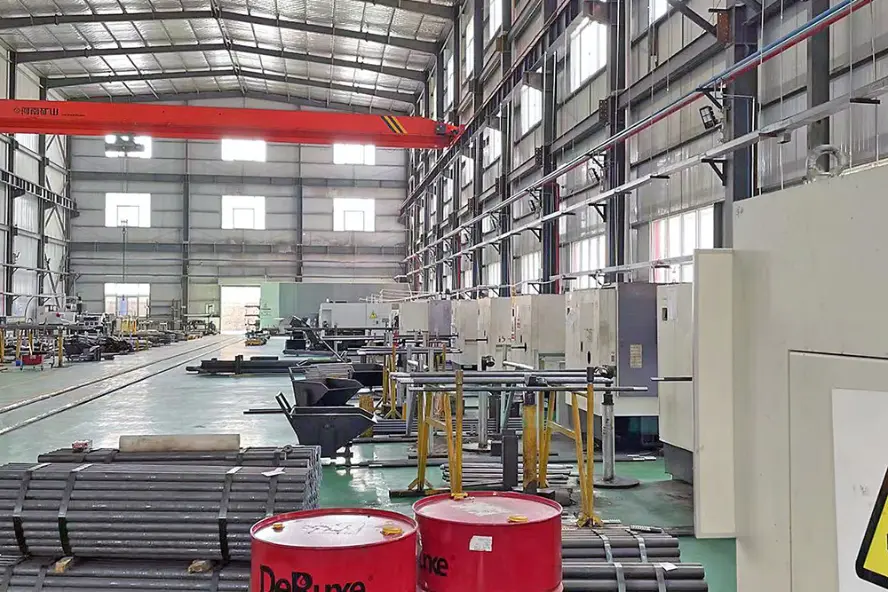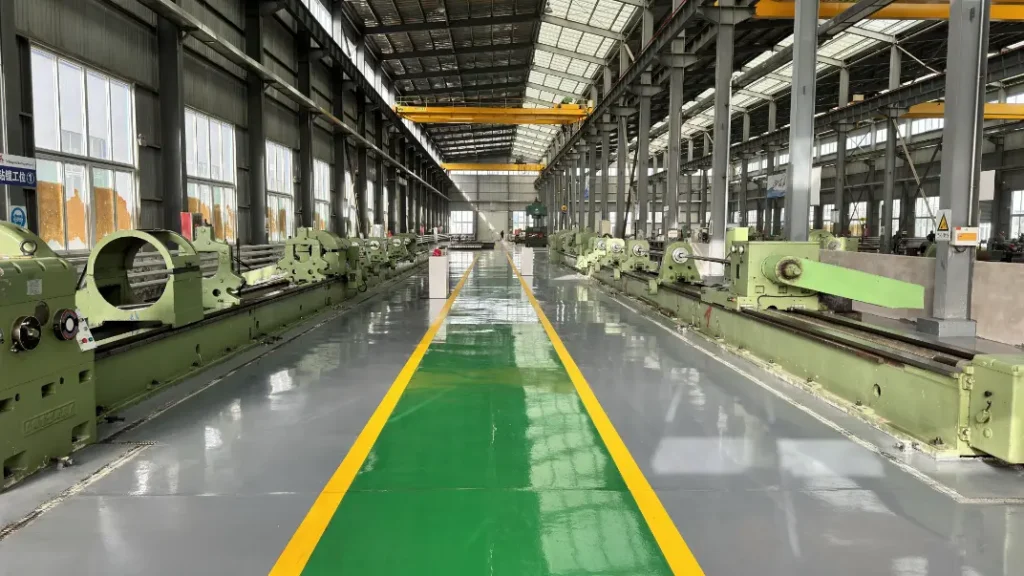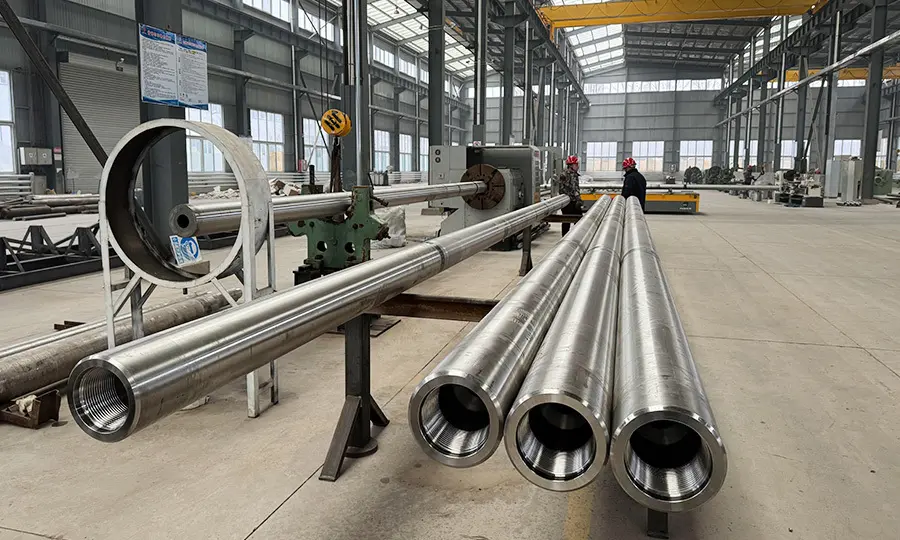High-Quality Drill Pipe: Reliable Solutions for Efficient Drilling Operations | Welleshaft
When it comes to the efficiency and reliability of drilling operations, the quality of the drill pipe is crucial. A high-quality drill pipe ensures optimal performance and durability, which can significantly impact the success of drilling projects in various industries, including oil and gas. Welleshaft, a leading global supplier and contract manufacturer, is renowned for providing top-notch drill pipe solutions tailored to meet diverse needs. This article explores the importance of drill pipes, their specifications, and why Welleshaft is your go-to provider for all your drill pipe requirements.
What is a Drill Pipe?
A drill pipe is a crucial component of the drilling equipment used to drill boreholes into the earth’s surface. It is typically a long, cylindrical tube made from high-strength steel, designed to withstand the high pressures and stresses encountered during drilling operations. Drill pipes are connected to form a drill string, which transmits rotational force from the surface to the drill bit at the bottom of the borehole.
Key Functions of Drill Pipes
Transmission of Rotational Force: Drill pipes transfer the rotational force from the drilling rig to the drill bit, allowing it to cut through the earth’s layers.
Fluid Circulation: They also facilitate the circulation of drilling fluids (mud) from the surface to the drill bit, which helps in cooling, lubrication, and removal of cuttings from the borehole.
Support and Stability: Drill pipes provide structural support to the drill string, ensuring stability and alignment during drilling operations.

Types of Drill Pipes
Drill pipes come in various types and specifications to suit different drilling needs. Some common types include:
1. API Drill Pipe
Manufacturers design API (American Petroleum Institute) drill pipes to conform to industry standards and support various drilling applications. They are available in different grades, including E, X, and G, each designed for specific operational requirements.
2. Heavyweight Drill Pipe
Drilling engineers use heavyweight drill pipes alongside standard drill pipes to increase the overall weight of the drill string, stabilize the drill bit, and improve drilling efficiency.
3. Composite Drill Pipe
Manufacturers use advanced materials to produce composite drill pipes that provide enhanced strength, reduced weight, and corrosion resistance, making them ideal for specialized drilling operations.
4. Wired Drill Pipe
Wired drill pipes feature embedded electrical wires for real-time data transmission, enabling more precise control and monitoring of drilling operations.

Drill Pipe Specifications
Understanding drill pipe specifications is essential for selecting the right pipe for your drilling needs. Key specifications include:
| Parameter | Specification A | Specification B |
| Type | Standard Drill Pipe | Heavy-Weight Drill Pipe (HWDP) |
| Grade | S135 | G105 |
| Outer Diameter (OD) | 5 inches (127 mm) | 5 inches (127 mm) |
| Inner Diameter (ID) | 4.276 inches (108.6 mm) | 3.833 inches (97.4 mm) |
| Wall Thickness | 0.362 inches (9.19 mm) | 0.583 inches (14.8 mm) |
| Standard Length Range | 31 feet (9.45 meters) to 45 feet (13.72 meters) | 31 feet (9.45 meters) to 45 feet (13.72 meters) |
| Custom Length Options | Available upon request, ranging from 20 feet (6.1 meters) to 60 feet (18.29 meters) | Available upon request, ranging from 20 feet (6.1 meters) to 60 feet (18.29 meters) |
| Weight | 19.50 lbs/ft (29.0 kg/m) | 24.7 lbs/ft (36.75 kg/m) |
| Connection Type | API NC50 | API NC50 |
| Yield Strength | 135,000 psi (931 MPa) | 105,000 psi (724 MPa) |
| Torsional Strength | 50,000 ft-lbs (67,800 Nm) | 65,000 ft-lbs (88,130 Nm) |
| Makeup Torque | 22,000 to 30,000 ft-lbs (29,830 to 40,670 Nm) | 29,000 to 32,000 ft-lbs (39,330 to 43,390 Nm) |
| Application | Oil and gas drilling | Oil and gas drilling |
| Features | High torsional strength, corrosion resistance, fatigue resistance | High torsional strength, corrosion resistance, fatigue resistance, enhanced durability |
1. Diameter and Length
Drill pipes come in various diameters, typically ranging from 2 3/8 inches to 6 5/8 inches, and lengths that can be customized based on project requirements.
2. Wall Thickness
The wall thickness of drill pipes affects their strength and durability. Common thicknesses range from 0.3 inches to 0.5 inches.
3. Steel Grade
The steel used in drill pipes must withstand high pressures and harsh conditions. Common grades include S135 and X95.
4. Thread Type
Drill pipes feature different thread types for connecting pipes, including API connections and premium connections, depending on the application.
Drill Pipe vs. Drill Collar
While drill pipes and drill collars are both critical components of a drill string, they serve different purposes:
- Drill Pipe: Primarily used for transmitting rotational force and drilling fluids.
- Drill Collar: Heavier and thicker than drill pipes, drill collars are used to add weight to the drill bit and stabilize the drill string.
Drill Collar vs. Drill Pipe: Key Differences
Weight: Drill collars are significantly heavier than drill pipes.
Function: Drill collars provide weight and stability, while drill pipes transmit rotational force.
Construction: Drill collars are made from thicker, heavier steel, whereas drill pipes have a more standardized construction.
Drill Pipe Suppliers and Manufacturers
Choosing the right supplier and manufacturer is crucial for obtaining high-quality drill pipes. Welleshaft stands out as a trusted global supplier and contract manufacturer, offering a comprehensive range of drill pipes to meet various drilling needs. Here’s why Welleshaft is the preferred choice:
1. Quality Assurance
Welleshaft ensures that all drill pipes meet the highest quality standards, including API and other industry specifications. Each product undergoes rigorous testing to ensure reliability and performance.
2. Wide Range of Products
From standard drill pipes to specialized options like wired and composite drill pipes, Welleshaft offers a diverse product lineup to cater to different drilling applications.
3. Custom Solutions
Welleshaft provides custom manufacturing services to meet specific project requirements. Whether you need a particular size, weight, or thread type, Welleshaft can deliver tailored solutions.
4. Competitive Pricing
With a focus on cost-efficiency, Welleshaft offers competitive pricing for high-quality drill pipes. Their transparent pricing and value-added services ensure you get the best return on investment.

Applications of Drill Pipes
Drill pipes are used in various applications, including:
1. Oil and Gas Drilling
In the oil and gas industry, drill pipes are essential for drilling wells and extracting hydrocarbons. They must withstand extreme pressures and corrosive environments.
2. Mining Operations
Drill pipes are also used in mining to drill exploration and production wells. They help in accessing mineral deposits and ensuring efficient extraction processes.
3. Geotechnical Drilling
For geotechnical investigations, drill pipes are used to obtain soil and rock samples for analysis. They play a crucial role in assessing ground conditions for construction projects.
Conclusion
High-quality drill pipes are vital for the success of drilling operations across various industries. Welleshaft, as a leading global supplier and contract manufacturer, offers reliable and durable drill pipe solutions to meet all your drilling needs. With a commitment to quality, a wide range of products, and competitive pricing, Welleshaft is your trusted partner for efficient and effective drilling operations.
For more information or to request a quote, visit Welleshaft and experience the difference that top-quality drill pipes can make for your projects.

